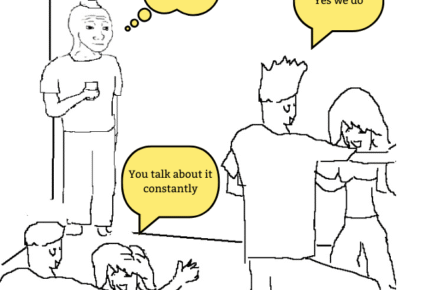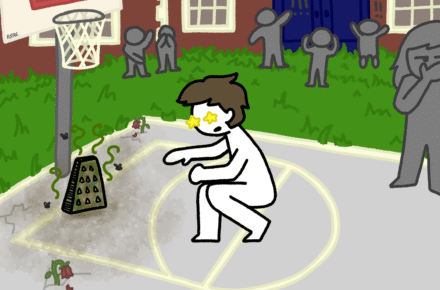Elettra Plati
On 20 April 2023, the UCU’s Marking and Assessment boycott began and after a long summer in which you may have spent too much time staring at your half-empty grade transcripts – anything more than a minute would be too long for such an activity – it finally ended 139 days later on 6 September 2023.
The UCU – University and College Union – represents over 120,000 academic staff members across the UK and is currently involved in a pay and working conditions dispute with UUK (Universities UK), and in a pen sions dispute with UCEA (University and Colleges Employers Association).
The University and College Union demands an improvement of the newly reformed pensions scheme and a fair pay rise that reflects the rapidly growing inflation rates and the cost-of-living crisis.
Resolved on 6 September, the MAB affected any mark that contributed to the decision on a summative grade. Modules affected by the MAB miss ing a grade were considered neither a fail nor a pass, though if the grade is still missing the relevant module credits are not registered as completed.
While this uncertainty has, understandably, caused grow ing anxiety amongst students, adjustments were made as to minimise distress and no student failed a module because of a missing grade.
All students who were affected have been able to progress to the next academic year, despite technically not having the required 120 credits registered as completed. Fortunately now the MAB has ended, missing grades will slowly, but surely, start to be released.
Still, many students were anxiously stuck in grade-limbo for almost five months and it will take some time for the final judgement to be made on all missing papers.
The uncertainty and absence of communication surround ing the MAB led to students voicing contrasting opinions on the issue, with some more than others growing increasingly frustrated at UCL and even at striking professors. A second-year Law student stated that whilst they ‘completely understand what the teachers are fighting for’ the MAB didn’t make sense as they are ultimately ‘hurting students.’
While some students might feel as if they were (and still are) unfairly punished by the MAB and their professors, it is important to maintain clarity amidst distress.
Strikes are a last resort even for professors themselves, who often lose part of their pay for partaking in strikes, and who are very aware that students will inevitably get hurt but are left no other choice.
A third-year Geography student admitted to The Cheese Grater that their frustration comes down ‘not to the staff and the work that they’re trying to do, but to UCL as a whole’ for refusing to get through the issue effectively and instead let students suffer its consequences.
Compassion for professors and anger towards UCL grows rapidly when one learns that UCL is working on a surplus, but decides to invest their money elsewhere rather than granting fair pay to the staff.
Some students expressed how projects such as UCL East sometimes feel like a ‘distraction tactic’ by UCL. They simply turn their heads (and money) elsewhere and neglect existing issues such as underpaid staff.
Moreover, there has sadly been a lot of misinformation, and students’ opposition to the MAB often stemmed from this lack of clarity. A common misconception is that UCL is not directly responsible for determining pay rises which are handled by the government.
Upon learning that UCL is responsible for their employee’s pay and working conditions, a third-year Law student affirmed that refusing to increase wages is ‘pretty stupid [of UCL]’, admitting: ‘I can’t really think of anything right now that I feel would be a good alternative to the boycott.’
Another student has reacted to this information by admitting that the whole situation has made him think of UCL as ‘quite greedy’, and while he – like many of us – doesn’t know the ins and outs of UCL’s financial situation ‘[I] can only imagine them making a lot of money.’
Professors are aware of the harsh consequences that students are facing and have worked hard to minimise the effect of the MAB on the student body.
Within the History department, some striking professors privately informed students of their grades before the boycott ended. Although these marks were not moderated nor released and were therefore provisional, students were still able to gain some sense of stability amidst extremely stressful circumstances.
A third-year Law student concluded that, despite the obvious frustration, he remains ‘in support of industrial action on the whole […] because the staff are worth more than what [UCL] pays them’. This view seems to be the prominent one amongst the student body.
Ultimately, while they might disagree on the means, students generally seemed to support the aim of the MAB and recognise, perhaps reluctantly, that there are no alternatives. Students have also recognised that whilst the MAB has been the strike that has affected them the most – compared to the teaching strikes, where the untaught syllabus content was simply removed from the exam papers – this boycott has also been the most impactful and successful in its aim.
A third-year student suggested that UCL themselves did not anticipate ‘just what an effect [the MAB] would have’, as this boycott probably ‘caused more disruption than any of the strike action ever did.’
The MAB – like all the other teaching strikes this year – was a cry for help. As students faced frustration due the temporary absence of our grades, academic staff still struggle due to an unjust absence of money. And unlike the MAB, poor levels of pay don’t have a legal expiration date by which wages have to be increased and the pension scheme improved.
Successful strike action implies collective action: in critical times like these, we must come together to advocate not for what is best for us individually, but for what is just.
Additional reporting by Ishita Jainer









